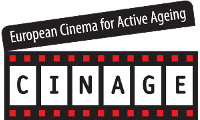Active Ageing and Learning for Active Ageing
- Background and methods
The European Commission identified active and healthy ageing as a very important area. A structured critical literature review used evidence from 2000 onwards, across UK, Italy, Slovenia and Portugal. The review considered six competencies for active ageing: Learning; Civic and Community; Health; Emotional; Financial/Economic; Technological, in EU, national, and regional (Umbria) contexts.
- Demographic context and active ageing principles
Rising life expectancy across the four countries poses challenges: in Portugal the population aged 65+ is projected to rise from 19.5%in 2011 to 35.72% in 2050; in Slovenia the proportion aged 65+ is expected to rise from 24.8% in 2020 to 33.5% in 2059, in Umbria, the population aged 65+ currently totals 23.2%, and in the UK 2030 there will be 51% more people aged 65+ compared to 2010. The four areas in the 2012 European Year for Active Ageing are employment, social participation, independent, healthy and secure living; and enabling environment (EU, 2013). Underlying principles include sustaining a balanced life-course process; positive definitions; inclusiveness; multi-dimensional and empowering approaches.
- The competencies
- Learning
- The trend is for participation among older people to be higher in non-formal than formal learning, and to lessen with age. The University of the Third Age (U3A) has played a vital role. In Portugal U3As are mainly urban, and include parallel activities such as theatre. In Slovenia, networks of U3As and other providers support personal growth, paid or non-paid work, active citizenship and local development . In Italy, U3As play a vital role to overcome the dropping involvement of older people, in the UK U3A learning strongly engages with health and emotional interests, less strongly with others. Lifecourse inequalities impact on later life learning.
- Civic and community
- Civic and community participation can be assisted by flexible retirement transitions, supporting volunteering opportunities, recognising and rewarding family care, and valuing creative activity. As in Portugal, project interventions can encourage active ageing through improving community environments supporting social participation and inclusion. Education can promote skills for democratic citizenship, as in Slovenia. The growth of volunteering in Italy runs alongside traditions of family care (grand-parenting). In the UK volunteering is strongly targeted in spite of cuts in financial support to the voluntary sector.
- Health
- Promoting health for active ageing needs to take account of diversity by age and health status. The Portuguese National Health plan promotes intervention principles of autonomy, active participation, self-fulfillment and dignity. In Slovenia, a high proportion of older people have a long-standing illness: self-care depends on functional capacity, opportunities for stimulating activity, and attitudes. In Italy, the focus is on lifecourse lifestyle and on integrated home care. In the UK, influences on well-being include an asset based outlook, social engagement and setting own norms. Informal learning with social engagement can improve wellbeing.
- Emotional
- The evolution of family structures is a big factor in emotional wellbeing in Portugal where a focus needs to be on appropriate homes. In Slovenia mental and emotional concerns are a most frequent reason for using primary health care: positive leisure activities are predictive of emotional satisfaction. In Italy the crucial role of extended family and friendship in emotional wellbeing is known, along with independence, dignity, care and support. In the UK, research highlights the importance of independence, control, autonomy and activities that reduce loneliness.
- Financial/economic
- Labour force participation, a key factor in promoting active ageing, fell substantially in Portugal from 78% in 1974 to 52% in 2008. In Slovenia, only 1 in 3 of people aged 55+ are employed. In the UK, long-term unemployment is highest among over 50s. There is a need for non-discriminatory attitudes at work and pension systems rewarding later retirement to reduce financial anxiety. In Italy retirement tends to be sudden; rising proportions of the elderly live alone.
- Technological
- In Portugal where older people use computers less, training is needed for digital inclusion towards autonomy, and social participation. In Slovenia, both assistive technology and internet use needs developing: older people alone are disadvantaged if not internet users. In Italy internet use is growing among older people, but households with only older people are less skilled. In the UK older people value digital, but need support as circumstances and technology move on.
- Needs and recommendations
A lifecourse learning approach is vital, considering diversity, citizenship, creative leisure, relationships, resilience, and removing structural barriers. Strengths of U3As can be expanded through effective partnerships and activating other learning sectors. Portugal emphasized joining up different policies, public and private initiatives, principles of autonomy, participation, self-fulfillment and dignity, action for caregivers and developing more participatory and learning spaces. Slovenia emphasised the need for formal and informal education towards knowledge, culture and self-realisation, dialogue between different older ages, and passing knowledge across generations. Older age needs a holistic, less medicalised approach, considering the balance between happy and productive later life. Gender issues need attention. Lifelong education requires more flexible transitions from work. Italy recommended a professional qualification of expert in lifelong learning; and further training for work-retirement transitions. Older people’s increasing commitment to volunteering needs to be seen as a strength. The UK recommended including older learners in educational planning, affordable courses, increasing pre-retirement training, challenging inequalities, developing opportunities to fit volunteering with informal care and leisure interests, and promoting health through peer networks. An empowering, strengths based focus is needed, respecting the variety and resources of older people. Finally, society needs challenging imaginatively to rethink older age.


 This project has been funded with support from the European Commission.
This project has been funded with support from the European Commission.